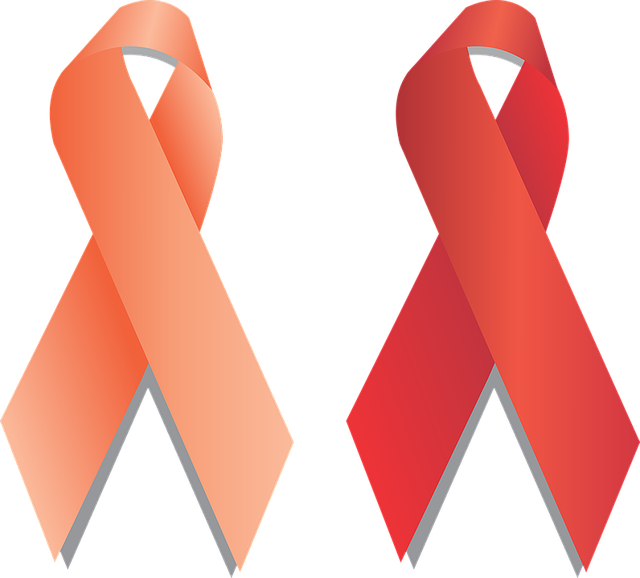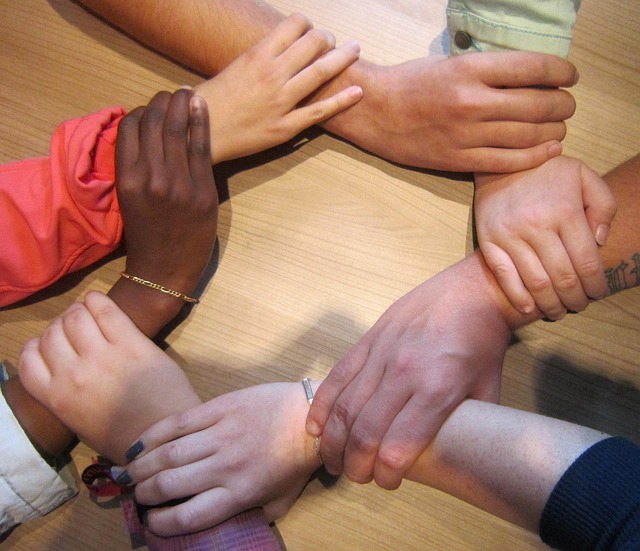Disclaimer: This page may contain affiliate links. We may earn a small commission for purchases made through links in this post, at no extra cost to you.
Frequently Asked Questions

The frequently asked questions page is a starting point for many when they come to a new site. As such, I hope you will find this page useful. I recently received an email from a nurse friend of mine. Her grandfather had Alzheimer's and unfortunately he passed away a few years ago. She told me he felt like a prisoner in his own body.
One of the points she brought up about patients and families of victims of most diseases was that they all ask similar questions. She came up with the following list which could be asked about any disease or chronic condition. I will attempt to answer them here based on our experiences with multiple sclerosis.
Thank you, Kassandra for your support and helpful insight.
Frequently asked questions
What does this mean for my family?
What is being done in the world as far as discovery of a cure?
What resource materials or help is available to me and my family?
What can I expect the multiple sclerosis to "do" to my body?
How can I be of help to others who are also suffering from MS?
- Q: What IS Multiple Sclerosis?
A: MS is a chronic disease of the central nervous system (CNS). The nerves to different parts of the body are effected in such away that the patient can have symptoms that come and go or gradually worsen. These symptoms can sometimes lead to disability. There are four main courses that MS can take; relapsing-remitting, secondary-progressive, primary-progressive, and progressive-relapsing multiple sclerosis. Click here to read more about what MS is.
Return to Top of Frequently Asked Questions
- Q: What does this mean for me?
A: Once you are diagnosed with MS, other than already having at least two relapses, you will not know the exact course it will take until you have lived with it a while. 75% of people who are diagnosed with multiple sclerosis will never become disabled to the point of needing a wheelchair. Your set of symptoms will be unique to you depending on the amount of demyelination in your CNS.
You will need to learn to manage your symptoms in order to maintain your particular lifestyle. The way you used to do things in the past may need to change, depending on the kinds of symptoms or the amount of disability you have. For example, walking may become more difficult if you experience foot drop or weakness in your legs. An AFO or one of those new electrical nerve stimulating devices may help to keep you mobile. A cane or walker can also keep you mobile. If fatigue becomes an issue, you may need to reorganize your daily activities to do things when you have more energy.
You may eventually have a team of doctors and other health care professionals to help you manage your care along with your family members. Living with MS can mean many changes for you, but it is possible to live a long life even while having multiple sclerosis. It just means doing the things you do differently.
Return to Top of Frequently Asked Questions
- Q: What does this mean for my family?
A: Your family will definitely be affected by whatever happens to you. When there is any type of illness in one family member, the whole family suffers. If you are the person with MS and you are the sole income earner, that will inevitably lead to your spouse, partner or an older child needing to replace that income. If you apply and are approved for Social Security Disability Insurance, this will help with your health care and medication costs.
If your spouse is the one who has MS, then you will probably become their caregiver at some point. And if you work, juggling work, family responsibilities, and caregiving, can be very difficult emotionally and physically. Your caregiving responsibilities may eventually cause you to have to stop working. This can mean a total change in the way you live today.
If your child has MS, this can also be a trying time for you as parents. Dealing with your child's health problems and emotional needs in addition to the normal childhood issues, can be very difficult.
Learn as much as you can, so that you can help your child understand what is happening to them. You can help your child learn coping skills, as well as how to manage his or her daily activities.
Return to Top of Frequently Asked Questions
- Q: What can I do about it?
A: Becoming educated about multiple sclerosis is one of the best things you can do, especially at the beginning. Reading books about multiple sclerosis is very helpful. When my husband Cir was first diagnosed, we read all the books we could find. One which was very helpful was "The Questions You Have - The Answers You Need" by Rosalind Kalb. This was one of the most helpful books in answering many of the questions we had about everything and anything you can imagine.
When Cir was first diagnosed, there weren't very many internet resources, but now that has changed. Our site is evidence of that. A search of multiple sclerosis will turn up a host of websites, both medical and personal.
You might also consider joining a support group either on the web or a local one in your area. Talking to people who's lives have also been changed by MS, can show you that you are not alone. Sharing your experiences with others, can be a way of connecting with people. A way of warding off feelings of loneliness and isolation, especially if you are no longer mobile and can't get out and about like you used to.
Return to Top of Frequently Asked Questions
- Q: Is there a cure for MS?
A: At present, there is no known cure. Scientists and researchers all around the world are searching for a cure for this potentially disabling disease. They are coming closer and closer to figuring out what causes it. When they do find a cause, a cure can't be far behind. There are several FDA approved treatments for the different types of MS and medications for the symptoms. But as of right now managing the symptoms with medications and other alternative treatments is all that is available.
There are many people out there, however who feel they have found a cure for their MS. Some feel that a special diet has helped them overcome their symptoms. Others feel that natural remedies like bee sting therapy has helped them go into remission. Others swear by alternative treatments like low dose naltrexone.
Return to Top of Frequently Asked Questions
Q: What is being done in the world as far as discovery of a cure?
A: The National MS Society (NMSS) is one of the major advocates in the search for a cure. They host many fund raising events every year. The millions of dollars in proceeds go toward research as well as help and support for people with MS. Be sure to join the NMSS so that you will receive their regular newsletter to stay up to date with what's happening as far as a cure for multiple sclerosis.
Their are many hospitals and research facilities around the world working toward a cure. The Montel Williams MS Foundation is one of these. Since his diagnosis with MS, Montel has used his voice and position to let others know about multiple sclerosis and to help find a cure.
Return to Top of Frequently Asked Questions
- Q: What resource materials or help is available to me and my family?
A: The National MS Society has been a big help to our family. In addition to their fund raisers, they also operate the MS Loan Closet. Through them, medical equipment is made available to members who have MS and are unable to purchase what they need. A prescription is needed for the equipment, and the loan closet "loans" the item to you until you no longer need it. Things like walkers, canes, shower chairs, and wheelchairs are available to people who have need of them.
We are also fortunate to live in an area where a clinic devoted specifically for people with MS was built a few years ago. The Oak Clinic was founded by Jim Oelschlager, a man who also suffers with MS. Cir and I had the opportunity to meet him and were amazed and are so very appreciative of his generosity.
The Oak Clinic is a wonderful place to go for those living in the northeastern part of Ohio. Dr. Carrabine and Patty Blake (another MS sufferer), have been there from the beginning. They seem more like friends than Cir's doctor and MS nurse.
The Cleveland Clinic is also a leading research facility in the fight against MS. There are so many more places like this around the country. We will soon have a page dedicated to these places which are so helpful to people with MS, so keep checking back. Sign up for our Newsletter – The MS Experience, for special updates and groundbreaking news.
You might also want to consider getting a service dog. If you like dogs and are able to care for one, service dogs provide several services for people with MS. Occasionally called balance dogs, they would help keep you from falling by wearing special harness. Cir has considered this, but as of yet we haven't followed through.
Return to Top of Frequently Asked Questions
- Q: What can I expect the multiple sclerosis to "do" to my body?
A: No one can tell you what will happen to you specifically when you have MS. This disease effects each person differently. Even the amount of nerve damage and where it occurs, can't tell the neurologist how much, if any, disability you will have.
Most people will have only six to seven symptoms over their entire lifetime. And many of these can go into remission. Some of the most common symptoms are sensory in nature. Numbness, unpleasant feelings, and Lhermitte's sign. These occur in about 42% of people with MS.
One piece of advice we received around the time Cir was first diagnosed with MS, was to "expect the best, but prepare for the worst". No one wants to believe that they will end up in a wheelchair, unable to move or care for themselves. But in life, this is a real possibility, with or without the diagnosis of MS.
Above all, the one piece of advice we try to give people, is to try and keep your body as healthy as possible. I know you have been diagnosed with multiple sclerosis, but there are things that we sometimes do to our bodies that are not very healthy. Smoking and drinking are two vices that you should avoid if you have MS. Anything else, like overeating and lack of exercise, can cause you to have health problems that will only serve to complicate more your already complicated life.
All we're saying is think long and hard about your lifestyle choices. Do all you can to make the healthiest choices you can.
Return to Top of Frequently Asked Questions
- Q: Is MS hereditary?
A: This question has crossed our minds more than once since Cir's diagnosis and by then we already had three children. The short answer is no. According to our doctor, the chance that our children can also get MS is just a little higher than the general population. That is more about susceptibility than heredity.
Every person has about the same chance of developing MS as any one else. There is growing evidence that environmental factors which cause infections are most likely the cause.
One suggestion he made recently was to make sure our children were taking vitamin D supplements. While studying the patients that come to The Oak Clinic, he found that most of his patients had very low levels of vitamin D. The benefits of this vitamin for people with MS, have been around for quite a while in many of the natural health books.
We also know that vitamin D is made in our bodies when we are exposed to the sun. Because we live in an area where sunlight is limited during the winter months, it's probably a good idea to take supplements. It definitely can't hurt.
Return to Top of Frequently Asked Questions
- Q: Is MS contagious?
A: Now, the answer to this questions is a little funny. First of all, let me answer it. No. MS is not contagious. If it was, there would be a lot more husbands and wives, partners, or family members who have MS. This is not the case. When people who live in close proximity to one another do get MS, it is most likely because each of them is susceptible to getting it. Similar factors in their medical histories or the environment they grew up in play a bigger role in who finally gets MS.
I told you there was something funny about this question, right. Well, you'll have to check back tomorrow in our blog. I'll write about it there. Don't forget to come back, it really was funny.
Update: Click here to read the story about MS being contagious.
Return to Top of Frequently Asked Questions
- Q: How are others coping with MS on a daily basis and is there something they are doing that might be of help to me or my family?
A: To answer this question, you will have to find others who live with MS. The best way to do this is to meet others like yourself. Support groups are a great place to meet people with MS. By becoming a member of the National MS Society, you will receive a monthly newsletter which showcases the support groups in your area along with the times and dates they meet.
If you are not as mobile as you used to be, maybe on-line forums or chat rooms would be better for you. This is Cir's way of keeping in touch with others who also have multiple sclerosis. We would eventually like to offer a chat room or message board. But we're waiting till our site grows a little more. Until then, we will suggest a few places that Cir likes to "hang out".
People with MS is a place that offers a chat room for anyone who suffers from MS as well as their family members.
Return to Top of Frequently Asked Questions
- Q: How can I be of help to others who are also suffering from MS?
A: The support groups I mentioned above are an excellent way for people with MS to help others like themselves. Another way is to become involved in NMSS Walkathons, and other types of fund raisers that bring multiple sclerosis research to the forefront.
So even if you are not the one with MS, you can help those who do by donating and raising funds for research, and just by talking and raising awareness about multiple sclerosis. Believe it or not there are people who still don't understand what MS is. Some still think it's that disease that "Jerry's Kids" get.
Even knowing someone who has MS, (and most of us do), doesn't make you an expert on what it is. Some in our family still don't fully understand it and Cir has been diagnosed since 1993.
If you know someone with MS who lives alone, try calling or visiting. You know all too well (if you have multiple sclerosis) not to bring pity or to try and do everything for them. A short visit or a call to find out how well they're doing and if they need anything will go a long way in letting them know that you care. Help them find and get to a local support group or find a place on-line where they can meet others who have multiple sclerosis.
All of these things will benefit the person who suffers with MS. Being alone is not a good thing when you suffer from a condition that can rob you of your life the way you have always known it to be. You almost have to reinvent yourself. Learn to do everything in a different way. But, in the spirit of our site, know that you can live your life in spite of MS.
Return to Top of Frequently Asked Questions
MS Answers
Of course, these are just a few of the questions commonly asked by patients and families of patients with a life changing disease. If you have any questions in general or about something more specific, head over to MS Answers!
There you can ask any question about MS you like. Either we will answer or one of our visitors will have a chance to comment and answer your question. And if you know the answer to any of the questions, you are welcome to answer as well.
Go from Frequently Asked Questions back to the Home Page
Dear Friends,
"Life in Spite of MS is a participant in the Amazon Services LLC Associates Program, an affiliate advertising program designed to provide a means for sites to earn advertising fees by advertising and linking to Amazon.com. We're also part of the Ebay Partner Network, another affiliate program."
We'd also like you to know it doesn't cost one cent more when you click through the links here on our blog. Not one single penny. And we will make a little extra cash when you do click through. We'll be ever so appreciative. You also have our word that we'll only link to things that we would use ourselves, (or wish we could have or use).
Sincerely,
Cir & Akrista
You are reading original content written by Akrista or Cir L'Bert of Life in Spite of MS. If you enjoyed reading this blog, please consider following us on Facebook, Twitter, Pinterest, and Instagram. See you there!
Privacy Policy ~ Advertising Policy ~ Disclaimer ~ Contact Us ~ About Us





New! Comments
Have your say about what you just read! Leave me a comment in the box below.